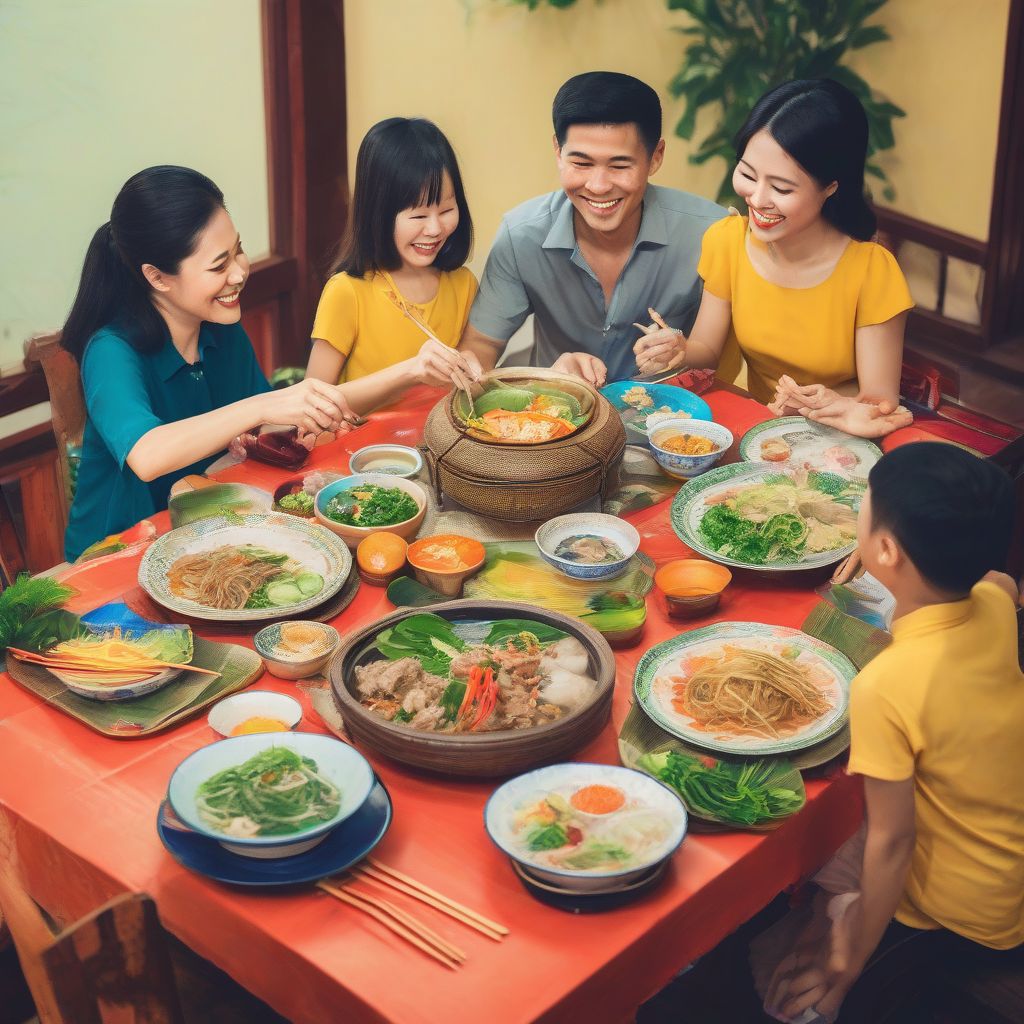Have you ever dreamed of stepping off the beaten path and into the heart of a local home in a far-off land? Imagine sharing a meal cooked with love, using recipes passed down through generations. It’s an experience that feeds not just your stomach, but also your soul, offering a window into the culture and traditions of a place like no other.
But navigating the world of traditional meals and local customs can sometimes feel like navigating a foreign language. How do you ensure you’re being respectful? What if you don’t like the food? How do you even find these hidden culinary gems?
Embrace the Adventure of Authentic Cuisine
Engaging with local families over traditional meals is a rewarding experience, but it does require a bit of sensitivity and preparation. Here’s your guide to not only enjoying these unique culinary adventures but also making the most of the cultural exchange:
Finding the Right Opportunity: Where Food and Culture Converge
1. Connect with Locals:
- Homestays: Opting for homestays over hotels immediately immerses you in local life, often with the bonus of home-cooked meals included.
- Community Tourism Networks: Seek out organizations that connect travelers with families eager to share their food and culture.
- Cooking Classes: What better way to understand a cuisine than by learning to cook it firsthand? Many destinations offer cooking classes hosted by local families.
2. Be Open to New Experiences:
- Try Everything (Within Reason): Even if a dish looks unfamiliar, take a small portion to show respect and try it. You might be surprised!
- Communicate Your Dietary Needs: If you have allergies or dietary restrictions, communicate these clearly and politely in advance.
- Don’t Be Afraid to Ask Questions: Showing an interest in the food is a great way to show your host you care. Ask about ingredients, cooking techniques, and the story behind the dish.
Respectful Dining Etiquette: Navigating Cultural Norms
1. Dress Appropriately: In some cultures, dressing modestly is important, especially when dining in a family home. Do your research beforehand to ensure you’re not unintentionally disrespectful.
2. Be Mindful of Table Manners: Customs regarding eating utensils, sharing dishes, and finishing your plate vary widely. Observe your host and follow their lead.
3. Offer to Help: Even if your offer is declined, offering to assist with setting the table, serving food, or washing dishes is a gesture of appreciation.
4. Express Your Gratitude: A heartfelt thank you goes a long way. Learn a few basic phrases in the local language to express your enjoyment of the meal.
 Vietnamese Family Meal
Vietnamese Family Meal
Making Memories Beyond the Mealtime
Remember, enjoying traditional meals with local families is about more than just the food; it’s about connecting with people from different cultures on a personal level.
- Share Stories: Be open to sharing stories about your own life and culture. Conversation is a two-way street!
- Learn a Few Basic Phrases: Even a few words in the local language can enhance communication and show your hosts you’re making an effort.
- Bring a Small Gift: A small token of appreciation, like a local craft from your home country or a simple dessert, is a thoughtful gesture.
Savoring the Flavors of Connection
Sharing a meal is a universal language of hospitality. By approaching the experience with an open mind, a respectful attitude, and a genuine desire to connect, you’ll create lasting memories and forge bonds that go beyond the dinner table. These experiences often become the most cherished stories from your travels, reminding you of the warmth and generosity of people worldwide.
- Hardcover Book
- Chambers, Caroline (Author)
- Hardcover Book
- Gerard, Tieghan (Author)
- Hardcover Book
- Traeger, Alix (Author)
- Hardcover Book
- Weissman, Joshua (Author)
- Hardcover Book
- Parton, Dolly (Author)
- Hardcover Book
- Johnson, Jenny (Author)
- Hardcover Book
- Gerard, Tieghan (Author)
- Hardcover Book
- King Arthur Baking Company (Author)
- Hardcover Book
- Stewart, Martha (Author)





![Good Lookin' Cookin': A Year of Meals - A Lifetime of Family, Friends, and Food [A Cookbook]](https://m.media-amazon.com/images/I/518J4CCf2lL._SL160_.jpg)




